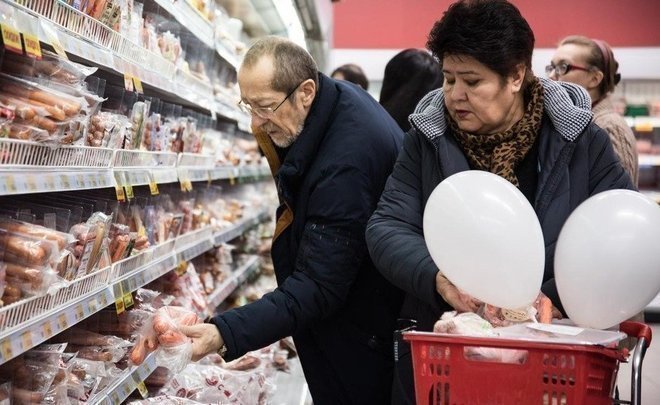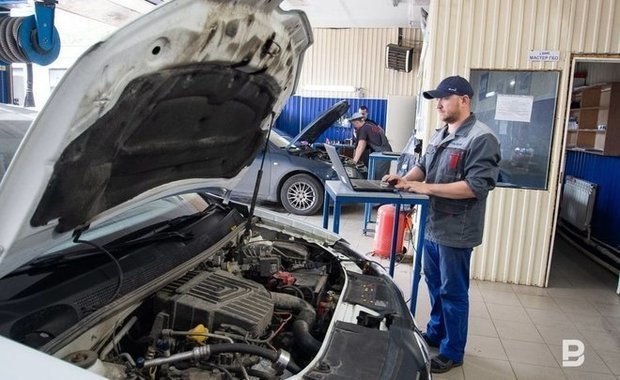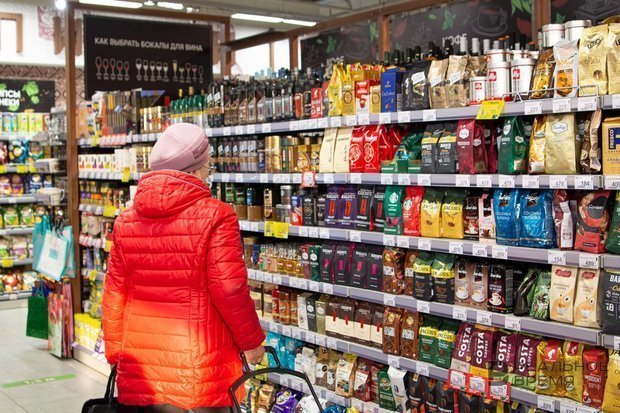Consumer activity index in Tatarstan one of the lowest in Russia
Residents of the republic have shrunk in spending on spiritual food in favour of flowers and gifts in March 2023

As Realnoe Vremya found out, Tatarstan residents have began to cut their expenses on own health, pets, and books this year, but increased spending on “beautiful life” — travel, restaurants, flowers. In March, according to Rosstat and the HSE, there was a decline in consumer activity in the republic compared to the same period in 2022, so Tatarstan turned out to be in the outsiders in the all-Russian rating — the 7th from the end. Realnoe Vremya — about what our residents refuse and in favour of what, what they save on, and what conclusions follow from this.
When less is better
Those who read little, indifferent to animals, fans of travel and gourmets — this is how the average Tatarstan citizen is drawn through the prism of research on the dynamics of consumer demand. Such conclusion arises when comparing the values of the consumer activity index of residents of the republic in different spheres.
At the same time, there is a curious nuance. Sharply — by as much as 60% — the amounts paid by our travellers in hotels have fallen. That is, they either chose cheaper hotels, or found an alternative, for example, in the form of rented housing. Therefore, it cannot be argued that the residents of the republic began to save on comfort when travelling with all their might — perhaps, many of them just found a way to comfortably stay on vacation for less money.
But what is indisputable is the fact of saving on communication, because it is extremely difficult to pay for the phone and the Internet today in cash. Reasonable and there is no doubt about the fact of austerity on car services: car repairs in the current economic situation are out of pocket, even if so-called contract spare parts are used for it — from car disassembly. Therefore, cars are repaired less often — only when there is literally nowhere else to go. At the same time, cash is more often paid at auto wreckers, so these costs are not taken into account when analysing the structure of spending. Well, as for the car washes included in the same category of services, the savings on them is expected: dirt on the body and interior does not affect the speed of movement, as motorists joke.

But there was a sharp, without one percent by a quarter, decrease in spending on pharmacies — read as: on the purchase of medicines. And this is already a serious problem — people save on their health. The zero dynamics of spending on medical services compared to the previous year should also be regarded as negative: taking into account the overall increase in prices and tariffs, this zero indicates that consumers purchase fewer services for the same money.
The same may be evidenced by a slight, within 4 percent, increase in the consumer activity index in terms of buying train tickets, paying for educational services and beauty salon services.
And, finally, the drop in the index of consumer activity in the field of transport, air travel and in terms of fuel purchase suggests that residents of the republic have begun to use less transport — any. Without extreme need, now they do not use transport, but sit still — they save money.
Well, instead of a note. Speaking about the dynamics and structure of spending not only of Tatarstan residents, but of all residents of Russia in March, it should be borne in mind that it is in this month that flowers and gifts, gift certificates are bought in beauty salons much more than at other times of the year. And on March 8, women are invited to restaurants, movies and — if the funds allow — even taken away on romantic trips.

There is nowhere to save more
In general, the consumer activity index in Tatarstan in March 2023 was 4,8 and turned out to be very low compared to other regions. The republic took only 71st place out of 78 in the rating of regions, ahead of only Kurgan Oblast, Adygea, Kalmykia, Khakassia, Yakutia and the outsider — Arkhangelsk Oblast. Of course, you can console yourself with the fact that Moscow is not far away in this rating — the 64th place with an index of 5.0. And the most wasteful are the residents of Udmurtia, Rostov and Volgograd regions — all three regions have a consumer activity index of 5.8.
At the same time, compared to March 2022, Tatarstan did not fall much — over the year, the consumer activity index decreased by 0,9, while the anti-leader, Moscow, fell by 2,3. In Moscow Oblast — 2,1, and in St. Petersburg and Primorsky Krai — 2. Kalmykia turned out to be the most stable in this regard — over the year, the consumer activity index has fallen there by only 0,4, despite the fact that now this republic is on par with Tatarstan (the index for March 2023 is 4,8).
A decline in consumer activity is always a signal of a drop in real incomes of citizens. People also start saving when the risk of job loss increases. The main reason that the consumer activity index of Tatarstan citizens in 2023 changed slightly in relation to the previous year lies on the surface: people have shrunk in spending as much as possible since the days of Covid-19, when they sharply lost income (and some even lost them altogether).
Who feels good in a crisis
As for businesses, in February 2023, construction and housing and communal services were gaining momentum in Tatarstan the best of all. In the first case, the rise in the price of building materials played a role, in the second, since this sphere is regulated, there was an “early” increase in tariffs, which took place throughout the country. It is logical that along with the cost of real estate, the turnover of realtors has also increased. And the growth of turnover in the area such as education can be explained by the post-market development of distance paid educational services.
In other areas, the growth of turnover in relation to last year turned out to be insignificant, or even fell altogether. It is quite logical that if the purchasing activity falls, the turnover of companies providing medical services also falls. For the same reason, the turnover in the car trade fell — the departure of Western companies and a sharp rise in prices for those brands that remained on the market affected.
The decline in the extractive industry is undoubtedly associated with a drop in oil and gas exports against the background of the oil embargo imposed by the EU, sanctions and the termination of gas supplies to the EU via the Nord Stream 1 pipeline. The drop in turnover in the manufacturing industry is also the result of sanctions and the disruption of logistics chains.
“We don't have complete information”
“We believe, for example, that people tend to take care of their health, but in practice people often behave irrationally. Therefore, it is quite difficult to justify why they save on medicines, and not on tourist trips," says Daniil Grigoryev, an expert at the Centre for Economic Research at the Institute of Globalisation and Social Movements. “Besides, it should be borne in mind that the ratings were built on the basis of information about certain transactions. It is possible that during this period some transfers were carried out, some other actions about which we do not have complete information.
Grigoryev stressed: speaking about consumer activity in any region, it is necessary to take into account total incomes, or rather:
“It is necessary to assess how the GDP has changed — how much value has been created during the year. If we create it more than before, then consumer activity is growing, if less, then it is falling. And we need to look at which areas new value is created. Last year, for example, there was a surge in the extractive sector, a large share was military spending, payments to the mobilised. This money is distributed unevenly. And they are spent unevenly, because in this sense it is very difficult to talk about who the “average Tatar”, “average Muscovite” is. We do not know from what sources household income is generated, and this also affects spending. Besides, quite a lot of people have left — and this can explain the decline in consumer activity. There may be many explanations, but the situation itself is like a “black box”, each reason given could affect consumer activity, or it might not.
According to Grigoryev, nominally, with an increase in prices for a particular product, there is also an increase in turnover, but in fact, the processes we observe are by an order of magnitude more complicated:
“The dynamics of inflation is not as uniform and informative. Such an explanation can only be partially accepted, since with an increase in prices, enterprises can pay more for the necessary products, or they can, for example, thinking about the long term, launch their own production. But on the scale of national economy, information about the dynamics allows us to make a forecast of, let's say, the economic results of the year. For example, we can say that this year and in the next 10 years revenues from extractive industries will be much lower than in previous years.